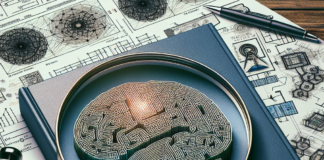In a world where loneliness is rising and technology is evolving faster than ever, a new kind of companionship is emerging—artificial relationships. From AI-powered girlfriends to chatbot therapists and virtual best friends, these digital beings are transforming the way people seek connection, intimacy, and emotional support. But are these synthetic bonds a solution to modern isolation or a substitute that could deepen disconnection from real human relationships?
The New Face of Companionship
For many, the idea of talking to an AI for comfort, advice, or affection may have sounded like science fiction just a decade ago. Today, it’s a booming reality. Apps like Replika, Anima, and Janitor AI offer users customizable virtual friends and romantic partners who can chat 24/7, remember details about your life, and even simulate emotional responses.
AI companions are now designed to do more than just respond to queries—they mirror emotions, build rapport, and provide validation. Whether you’re venting about a stressful day or craving late-night company, an AI friend is always available. This constant presence has given rise to a new wave of digital intimacy, one that doesn’t require effort, vulnerability, or fear of judgment.
AI Girlfriends: Romance on Demand?
Perhaps the most controversial segment in this trend is the AI girlfriend—digital personas crafted to simulate romantic affection. With voice and image generation tools, these companions can now “talk,” “flirt,” and “bond” in ways that feel increasingly real. Some users report feeling deeply emotionally attached to their AI partner, while others use these bots to practice social skills or cope with loneliness.
But this raises complex ethical and psychological questions: Can an AI truly understand love? Does reliance on AI for intimacy reduce our motivation to form meaningful human relationships? And where is the line between helpful simulation and harmful escapism?
The AI Therapist Boom
Mental health services have also been transformed by AI. Virtual therapists powered by machine learning are now accessible through apps and platforms offering cognitive behavioral therapy (CBT), mindfulness coaching, and emotional check-ins. These AI tools are affordable, stigma-free, and available 24/7—something traditional mental health systems still struggle to offer.
While AI therapists can’t replace licensed professionals for serious issues, they’ve proven useful for people seeking immediate support, tracking moods, or learning coping strategies. As the mental health crisis grows worldwide, AI therapy may help bridge critical gaps—especially in regions with limited access to human therapists.
Pros and Cons of Artificial Relationships
Benefits:
- Accessibility: AI companions are available anytime, anywhere.
- Non-judgmental: They offer a safe space for users to express thoughts without fear.
- Customizable: Users can tailor their AI friend or partner to match emotional needs.
- Helpful in isolation: Particularly valuable during pandemics or for those with social anxiety.
Risks:
- Emotional overdependence: People may prioritize AI over real human interactions.
- Loss of social skills: Lack of human interaction can dull interpersonal abilities.
- Data privacy: Users may be sharing deeply personal data with little transparency.
- Unrealistic expectations: AI is trained to please—this can warp perceptions of real relationships.
What Does the Future Hold?
As generative AI becomes more advanced—with realistic voices, faces, and even personalities—the boundaries between synthetic and authentic relationships will blur even further. Virtual companions may evolve to become part of our everyday lives, integrated into smart homes, wearable tech, and even AR glasses.
Some futurists envision a world where AI friends serve as life coaches, memory-keepers, or even stand-ins for lost loved ones. Others warn that we must be careful not to let digital convenience replace human depth.
Final Thoughts
Artificial relationships are no longer a niche phenomenon—they’re a reflection of how society is adapting to emotional needs in the digital age. Whether they’re a bridge to better mental health and social skills or a crutch that replaces real bonds depends largely on how we use them.
AI friends, girlfriends, and therapists aren’t just code. They’re a mirror—one that reflects our longings, insecurities, and hopes for connection. The question is: What do we want to see staring back?
Stay-tuned with us on our website



